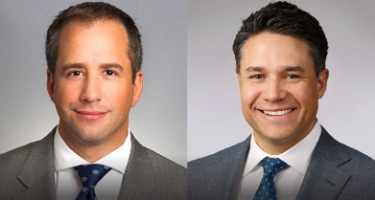Are autonomous vehicles (AVs) on the verge of transforming everyday life? A convergence of trends makes it a virtual certainty. Those trends are both technological (electrification and connectivity of vehicles, plus better artificial intelligence) and social (greater urbanization, a demand for immediacy, and increasing comfort with unusual new service models, as companies like Airbnb proliferate). Throw in their environmental, safety, and economic benefits, and it’s simply a question of when, not if, AVs will become a common sight on our streets.
Anticipating the numerous legal issues such technology presents, many general-practice law firms have established AV practice groups, which tend to focus on broader, more general issues such as safety regulations, IP licensing, and product-liability concerns.
AVs present abundant concerns for employers too, however—for companies in the AV industry, of course, but plenty of others as well. As such, Fisher Phillips, a national labor-and-employment boutique, recently launched its Autonomous Vehicles Practice Group, comprising 24 attorneys who can draw on deep experience in a number of critical practice areas:
Data privacy and cybersecurity
To ensure maximum safety, AVs will need to communicate with one another, with surrounding infrastructure, and with a host of technological platforms. (See also “Government Contract Compliance,” below.) Given widely held worries about hacking, data privacy and cybersecurity are therefore enormous concerns. AV companies, along with any business whose employees use its vehicles, will need to identify information vulnerable to a breach, prepare response plans, pinpoint applicable statutory and regulatory requirements, ensure protection across the supply chain, and train employees to spot and respond to future breaches.
Workplace safety
Increasingly prevalent in industrial settings, AVs present unique safety concerns that firms must address to avoid accidents and citations under OSHA’s machine-guarding standards and general-duty clause. Companies need lawyers with the relevant depth of experience to highlight these safety concerns and offer advice on how best to address them.
Employee defection and trade secrets
Billions of dollars have been spent developing AV technology, and those stakeholders must protect the confidentiality of their information. This requires prevention and, potentially, litigation.
Prevention
The AV industry is by definition technology-based and information-driven, and departing employees present risks of trade-secret theft and unfair competition. Likewise, companies often share sensitive information throughout the supply-chain continuum, and they must ensure that they adequately protect that data via carefully drafted, enforceable contracts. They must also audit and update all applicable internal policies and procedures, train their employees, and ensure they have effective physical and electronic security controls.
Litigation
The trade-secret litigation filed by Alphabet’s Waymo, concerning a former employee alleged to have stolen thousands of documents, typifies the threat. These matters frequently include emergency applications for injunctive relief, and require attorneys who are accustomed to rapid deployment to initiate or defend temporary restraining-order actions in any location with little advance notice.
Labor, unionization, and collective bargaining
Companies that use AVs will be able to reduce the number of workers they employ in driving occupations—so unionized firms need to plan ahead to address these reductions, negotiating terms in new collective-bargaining agreements that will accord them more flexibility when the time comes. As has happened with automation in manufacturing, unions are certain to fight the loss of these jobs. Companies need to prepare now.
General employment
AVs have been called “offices on wheels,” and any hourly employee using one as a place to get work done presents a wage and time-clock conundrum. Likewise, some employers will need to reconsider whether driving is an “essential function of the job” when providing accommodations for disabled employees. Workers who are unable to drive for medical or religious reasons may see AVs as legitimate accommodations.
Government advocacy
AVs’ increasing presence promises to increase businesses’ need for effective legislative and regulatory advocacy at both the state and federal level concerning the issues already discussed: data privacy, labor wage/hour, workplace safety, and more.
Government contract compliance
Vehicle-to-infrastructure communication (V2I) entails the exchange of safety and operational data between vehicles and the transit infrastructure that supports them. Enormous infrastructure upgrades will be needed, but the federal and state governments lack the technical expertise to implement these changes, making partnership with the private sector imperative.
Employers that support these intensive efforts should consider the impact of contracting with government agencies that will subject them to the jurisdiction of the Office of Federal Contract Compliance Programs (OFCCP). They also ought to consider whether they’ll be providing supplies or services necessary to the performance of a federal contract such that they become a federal subcontractor under the aegis of OFCCP. A number of state governments also impose affirmative-action compliance requirements.
Private equity and venture capital
Acceleration of the AV industry will be propelled by private equity and venture capital. This means investors who manage portfolio companies will need to ensure that any newly acquired businesses comply with employment laws and have well-drafted equity-based compensation arrangements to help them secure top talent. Like all technological advances before them, in short, AVs are likely to drive employers crazy. Forward-thinking law firms can help them rise to the challenge.
--------
Michael R. Greco is the regional managing partner of Fisher Phillips’s Denver office and chair of the firm’s Autonomous Vehicles Practice Group. His practice focuses on litigating and providing advice and counsel concerning trade-secret, noncompete, and data-privacy/cybersecurity matters in a variety of industries. He has litigated hundreds of these cases in nearly every state.





















